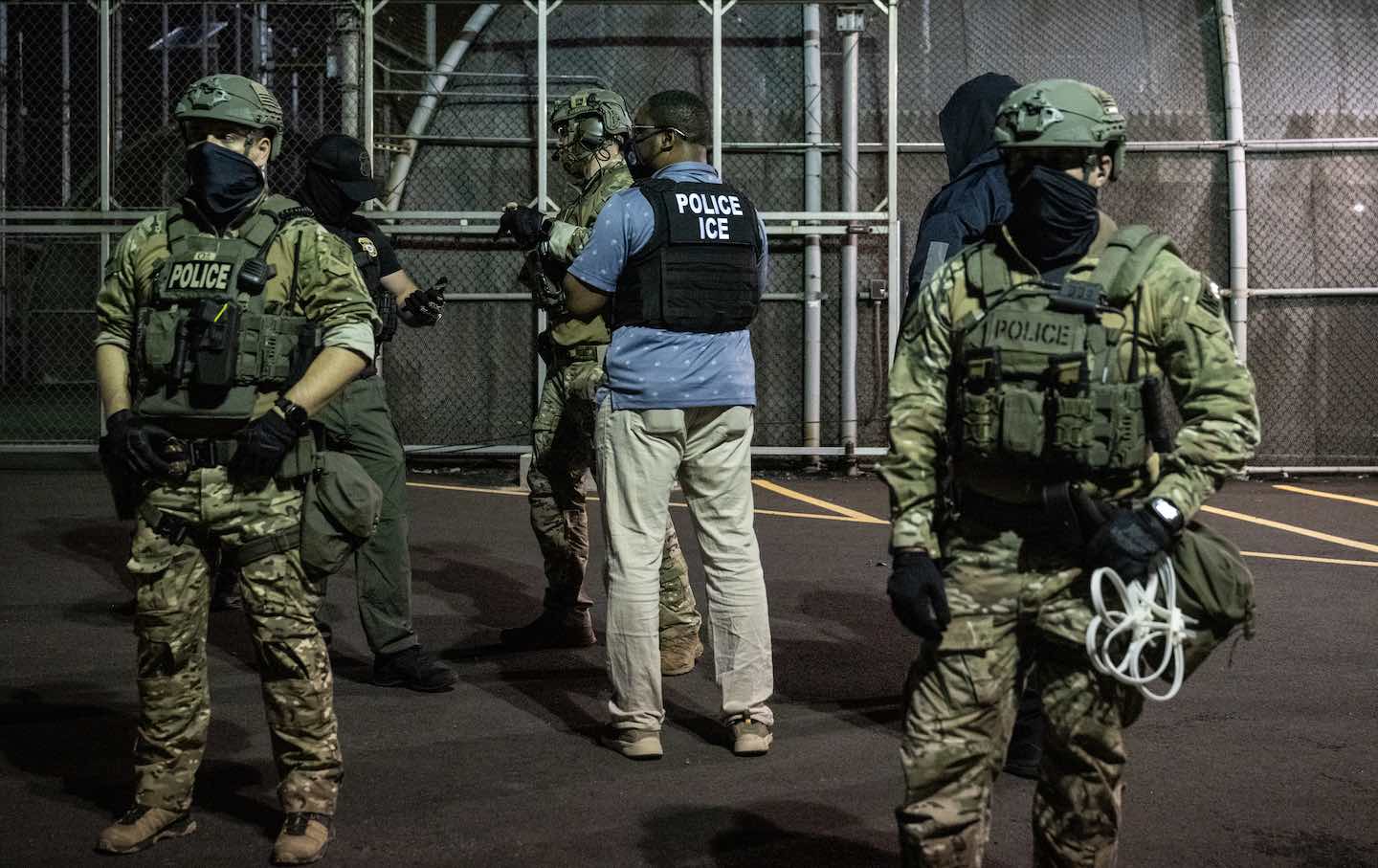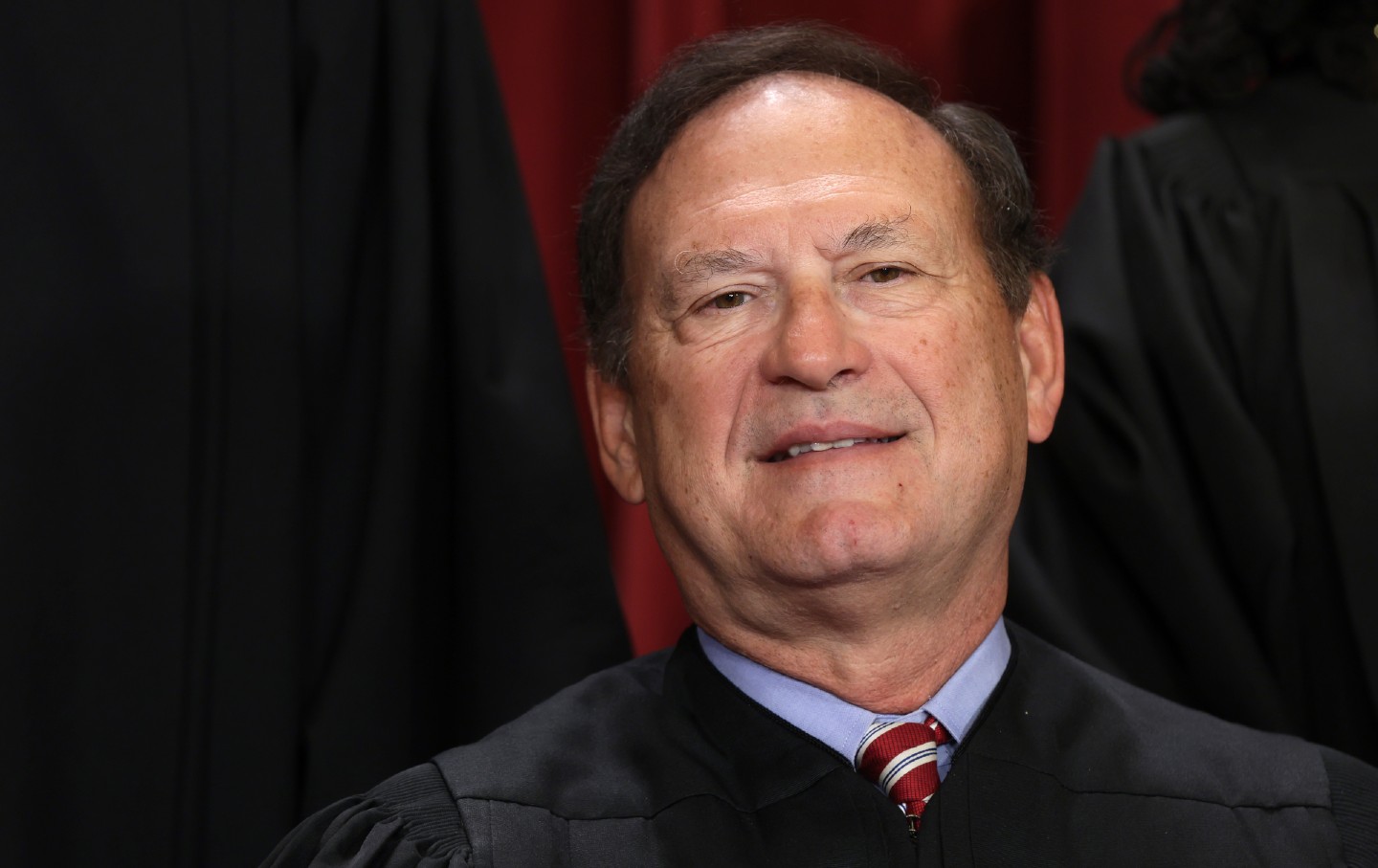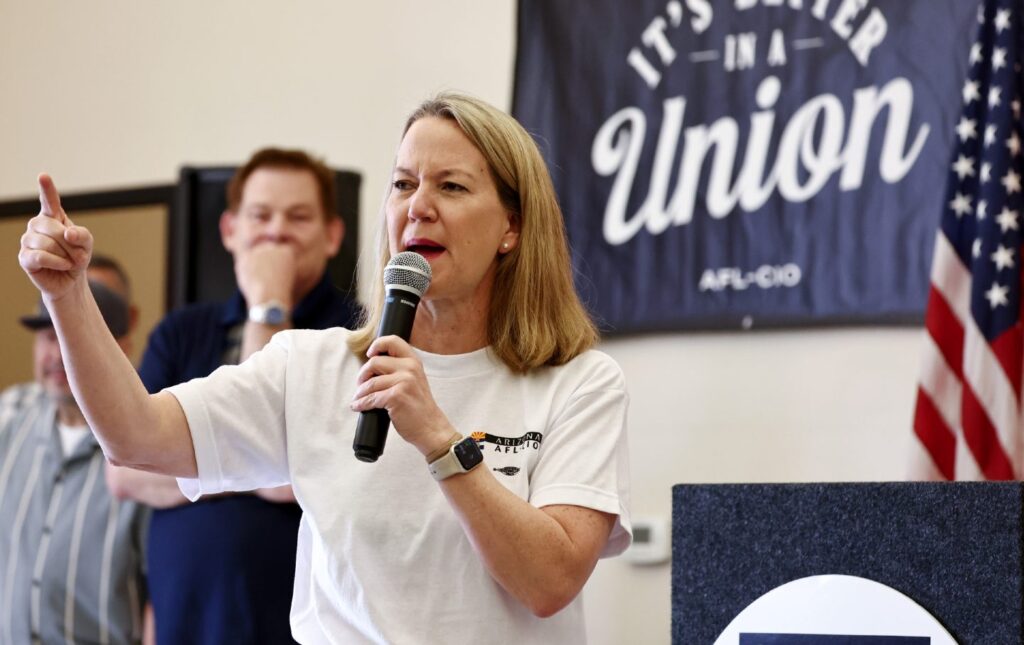July 2, 2025
As Trump’s antitrust appointees are more concerned about scoring in magazine cultural wars than limiting corporate abuse, U.S. officials are maintaining the fight.

Since Donald Trump took office in January, state officials enforcing laws surrounding corporate power have been looking for signs about which kind of partner they can expect in federal antitrust agencies. Federal executives during the Biden administration worked with state governments’ main monopoly and merger prosecutions, but with the incoming government’s more favorable view of corporate power, state executives have been thinking about how much trust the federal government has assumed.
The answers last week became clearer. Under the leadership of Andrew Ferguson, Trump-appointed chairman, the Federal Trade Commission liquidated the merger between the Advertising Electric Group and the interpublic group, created the world’s largest advertising company and controlled more than half of the industries. Ferguson’s FTC only has the company’s agreement to allow its customers to advertise on any platform (apparently Elon Musk’s X) to promote on any platform with its political inclination. As Ferguson talks about nominally independent agencies, ensuring advertisers don’t resist conservative media platforms “is the top priority for Trump’s flirting with FTC.”
Since Trump took office, the decision has imposed such blatant political goals on the work of the IAEA. In March, President Trump illegally fired two Democratic members of the FTC, Alvaro Bedoya and Rebecca Kelly Slaughter, giving the agency the ability to perform its core duties while pushing Trump’s campaign to deprive federal agencies of independence. While the agency found the ability to hold workshops on gender-affirming nursing hazards for minors, it was obvious to inform state officials when combating company abuses: You are alone.
The good news is that state leaders across the country are rising to meet this moment. Legislators and law enforcement officers from Rhode Island to Minnesota, Arizona are taking action to protect an increasing number of the public from being bullied, deprived and scammed by predatory companies. They are writing new laws aimed at checking corporate power and their harms (high prices, closing shops, unemployed jobs) and dragging monopolists to court.
In Rhode Island, residents of Woonsocket are an urban enclave that spans Massachusetts State University residents between Providence and Boston, who have struggled for years without access to fresh and healthy food. In the state’s largest and most enduring food desert, the city’s single supermarket is located where most people live. One-third of the residents receive federal food aid.
The state’s lieutenant governor Sabina Matos has begun working with independent grocery stores to better understand why the new store has not taken root in one of the city’s many open storefronts. She found it widespread in Rhode Island and all over the country: food deserts and people struggling to get fresh food, in part because small grocery stores face bullying from supermarket giants such as Walmart and their large suppliers, forcing them to charge customers more.
Current Problem

So Matos and her team helped develop a set of state bills that would ban large supermarkets from using to stop new stores from opening; keep good alliance work in the industry; and, supporters hope, help stimulate new fresh food options in the state. An important Rhode Island bill would bridge loopholes in the Robinson Patman Act, a federal law prohibiting discrimination on retail prices, and enable state enforcement to pursue abuse by large grocers and their suppliers. A similar bill supported by the National Grocery Association was introduced in Maine and Minnesota.
Mattos said states are crucial in opposing corporate power, no matter what the Fed is or does not do. “The integration of corporate power begins with your obstacles,” Matos told me in an email. “The dominance of the state is established at the local level. The only way to fight back is to have regulators on the ground, know their communities and be prepared to respond quickly to maintain it.”
Arizona residents likewise suffered through the Venn Diagram of corporate harassment and abuse. Rental costs in places like Phoenix and Tucson are much higher than they were a few years ago. Price increases during the pandemic never come back. After the wave of supermarket mergers, shoppers have fewer groceries options, and they are mean and unconscious in the remaining stores.
When supermarket giants Kroger and Albertsons threatened to merge two years ago, the state’s attorney general, longtime journalist and civil servant Kris Mayes, wanted to know what people were thinking. So she traveled across the state on a listening journey and she found people worried about losing their jobs, food deserts and prices for any shops that were after the merger. A resident in Prescott, Arizona told Mayes at the town hall there. “You have to protect the people you are responsible for.”
So Metz took action to join the FTC’s lawsuit against the agreement, and the government eventually won in court. Metz also uses her power as trust, with massive rental rate hikes in places like Phoenix, which has seen rent prices rise 76% since 2016, while Tucson has risen 30%. Mayes discovered and filed a lawsuit allegedly a conspiracy for rent prices driven by a company called RealPage, whose pricing algorithm allowed landlords to conspire over increased rents. When Mess learned that Amazon’s plan was suspected of depriving shoppers and locking them into a major membership, Mess used Arizona’s own local law to sue the company twice in state court.
“Frankly, people were hurt there,” Metz told me. “They are experiencing price increases, they know they are not normal, they suspect they are not legal,” she said. For state law enforcement officers, taking on business abuse, when and where it happens, “is definitely the core of the job.”
The national movement to fight back against corporate power has gone far beyond Rhode Island and Arizona. In Minnesota, state Attorney General Keith Ellison will be the main focus of the battle against monopoly. The focus is on finding partners at the Minnesota State Capitol where the opposition champions introduced and passed many bills supported or enacted by the Ellison Antitrust team. Legislators in New York and Massachusetts proposed important reforms (in the case of New York, ever) monopoly laws that, if enacted, would enhance the enforcers’ ability to identify and stop abuse of monopoly. In April, Washington became the first state in the country to require companies to report major mergers to state executives. State AGS from red and blue states all sued to fight Google, Meta, Ticketmaster and other out-of-control monopolies.
“I think antitrust does have answers to many of the economic questions that are bothering people,” Ellison said in a recent event for my organization, the Local Self-Reliance Institute and the National Innovation Exchange. “Why are wages stagnant? Why are we vanishing pharmacies across the state? Why are groceries rising, why are they going up? I think there is an overwhelming answer, and that’s the integration of the market.”
Like most states, Mayes and Arizona often work with federal antitrust agencies when prosecuting stopping dangerous behaviors and mergers. But Mays admits that while she values her trustees in Washington, D.C., the continuation of aggressive federal antitrust enforcement is doubtful at best.
Popular
“Swipe below to see more authors”Slide →
Despite the lip service provided by critics of corporate power, the current FTC seems to be more concerned with the core work of enforcing the law against corporate abuse than the conservative cultural war issues. Meanwhile, in the Justice Department’s antitrust wing, the new chief Gail Slater embraces the so-called “Maga Antrust” (which adopts antitrust laws in the institution to support conservative goals), the department may also focus more on cultural dissatisfaction than examining monopoly abuse. Workers, small businesses and shoppers will suffer.
At present, federal cases against Amazon continue. But no certainty will survive. The only guarantee now is that Metz and other state regulators are willing to undertake corporate abuse within their borders. More and more emotions live along the coast of state legislatures and judicial departments. “In these situations, we always make mistakes,” Metz said. “Sometimes, it means we’re going alone.”
More nation

Meanwhile, Democratic struggles with immigration have left it without a strategy of opposition.
Chris Lehman

Alito gained most opinions in Mahmoud v. Taylor, giving the paranoid parents a big, fat kiss and changing the nature of public education.
Elie Mystal

The court’s ruling on Medina v. Planned Parenthood undermines Medicaid and puts reproductive health care at risk.
Rachel Rebouché

Peter Thiel and his friends think they are no longer our species.
Jeet Lord

In Trump v. Casa, the court submitted the president’s more irresponsible authority and pulled us into a new Confederate legal nightmare.
Elie Mystal

The legendary journalist believes that telling the truth about power is an important foundation for an embattled American experiment.
Itu发
/
John Nichols


